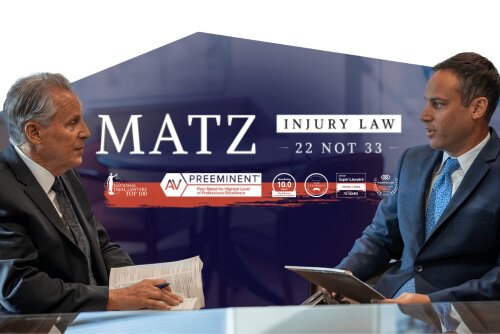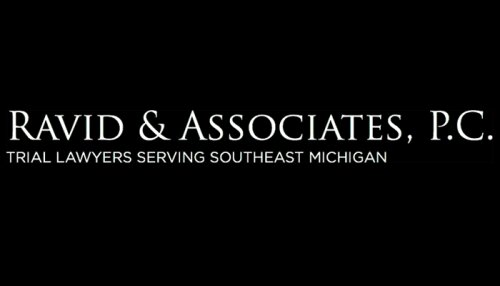Best Defamation Lawyers in Southfield
Share your needs with us, get contacted by law firms.
Free. Takes 2 min.
List of the best lawyers in Southfield, United States
About Defamation Law in Southfield, United States
Defamation law in Southfield, United States, pertains to legal actions taken against individuals or entities that make false statements causing harm to someone's reputation. Defamation is typically classified into two main types: libel, which refers to harmful written statements, and slander, which involves harmful spoken statements. The objective of defamation law is to balance the right to free speech with the need to protect individuals from false and damaging statements. In Southfield, as with the rest of Michigan, the legal system aims to address these issues through both state statutes and case law.
Why You May Need a Lawyer
Individuals might seek legal counsel in defamation cases for various reasons:
- False Statements: If you have been the subject of untrue statements that could damage your personal or professional reputation.
- Business Interests: Defamation might affect not only individuals but businesses as well; companies may seek damages for false statements impacting their market position.
- Social Media: In our digital age, defamatory statements can quickly spread online. Legal assistance may be needed to address libel occurring on social networks and other online platforms.
- Defense Against Claims: You may also require legal support if someone accuses you of making defamatory statements against them.
Local Laws Overview
In Southfield and the broader state of Michigan, several key legal principles apply to defamation:
- Defamation Per Se: Michigan recognizes certain statements as inherently damaging, such as those falsely alleging criminal activity, having a contagious disease, or professional incompetence.
- Public vs. Private Figures: Public figures face a higher burden of proof, needing to demonstrate 'actual malice'-that false statements were made with knowledge of their falsity or reckless disregard for the truth.
- Statute of Limitations: In Michigan, the statute of limitations for defamation cases is generally one year from the date the statement was made.
Frequently Asked Questions
What is the difference between libel and slander?
Libel is a form of defamation that involves written statements, whereas slander refers to spoken defamatory remarks. Both can cause damage to a person's reputation, but libel is generally seen as more harmful due to its permanent nature.
How is defamation proven in Michigan?
To prove defamation, a plaintiff must typically demonstrate that a false statement purporting to be a fact was made, it was published or communicated to a third party, negligence was exhibited by the party making the statement, and that it caused damage.
Can a negative review be considered defamation?
A negative review might be considered defamation if it contains false factual information that damages the subject's reputation. Opinions are generally protected, but false statements of fact are not.
What is 'actual malice', and when does it apply?
'Actual malice' is a standard applied in defamation cases involving public figures. It requires proof that the false statement was made with knowledge of its falseness or with reckless disregard for the truth.
Is truth a complete defense to defamation?
Yes, truth is generally a complete defense against a defamation claim. If the statement is true, it cannot be deemed defamatory.
Can I file a defamation lawsuit for statements made online?
Yes, defamatory statements made online can be subject to defamation claims. The complexities of digital communication require careful legal consideration.
What types of damages are available in a defamation case?
Damages in defamation cases may include compensation for financial loss, emotional distress, and in some cases, punitive damages intended to punish the defendant's egregious behavior.
Can apologies or retractions mitigate defamation claims?
Apologies or retractions may mitigate damages but do not necessarily prevent a defamation lawsuit from proceeding.
What should I do if I am accused of defamation?
If accused, it's important to seek legal advice promptly to assess the situation, understand your rights, and develop an appropriate response or defense strategy.
Is there a legal aid option for defamation cases?
Legal aid may be available depending on your financial situation and specific case details. Engaging a private attorney often provides more focused expertise in defamation cases.
Additional Resources
Individuals seeking further help or information can turn to several resources, such as:
- Michigan Bar Association: Provides resources and referrals to attorneys specializing in defamation.
- Southfield Legal Aid: Offers support for those who qualify based on income and need.
- Federal Communications Commission (FCC): Provides guidelines and regulatory insights for online and media-based communications.
Next Steps
If you believe you are involved in a defamation case, consider taking the following steps:
- Consult with a qualified defamation attorney in Southfield to discuss your circumstances and legal options.
- Gather evidence related to the defamatory statements, such as records of communication, social media posts, or witness testimonies.
- Evaluate your goals-is it seeking a public apology, correction of statements, or obtaining financial compensation?
- Stay informed of your rights and obligations under local defamation laws to ensure a well-prepared legal strategy.
Lawzana helps you find the best lawyers and law firms in Southfield through a curated and pre-screened list of qualified legal professionals. Our platform offers rankings and detailed profiles of attorneys and law firms, allowing you to compare based on practice areas, including Defamation, experience, and client feedback.
Each profile includes a description of the firm's areas of practice, client reviews, team members and partners, year of establishment, spoken languages, office locations, contact information, social media presence, and any published articles or resources. Most firms on our platform speak English and are experienced in both local and international legal matters.
Get a quote from top-rated law firms in Southfield, United States — quickly, securely, and without unnecessary hassle.
Disclaimer:
The information provided on this page is for general informational purposes only and does not constitute legal advice. While we strive to ensure the accuracy and relevance of the content, legal information may change over time, and interpretations of the law can vary. You should always consult with a qualified legal professional for advice specific to your situation.
We disclaim all liability for actions taken or not taken based on the content of this page. If you believe any information is incorrect or outdated, please contact us, and we will review and update it where appropriate.











